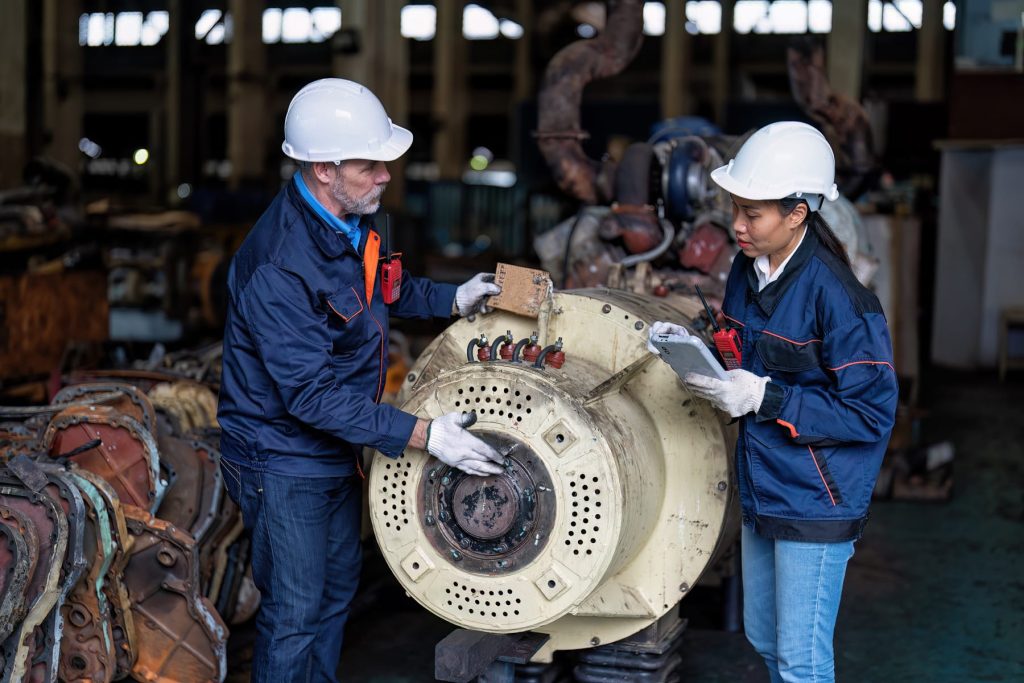In industrial environments, downtime isn’t just inconvenient—it’s expensive.
Often, the failures that shut down production lines, damage rotating equipment, or delay startups could have been avoided with one thing: preventive maintenance.
At Tillson Industrial, we don’t wait for failures to tell us there’s a problem. We help our clients prevent them with mechanical precision, structured inspection, and field-ready service programs.
Here’s what preventive maintenance really means, what it includes, and why it should matter to every plant manager, reliability lead, and project engineer we work with.
What Is Preventive Maintenance?
Preventive maintenance (PM) is the practice of performing scheduled inspections, adjustments, and repairs on mechanical equipment before a failure occurs. It’s a proactive strategy designed to extend equipment life, reduce emergency breakdowns, and maintain performance across the full operating cycle.
Unlike reactive maintenance (which waits for problems), PM is based on routine intervals or usage thresholds. It helps identify wear, misalignment, or degradation before those issues cause a shutdown.

What Does Preventive Maintenance Include?
Tillson Industrial’s mechanical PM programs are built around high-impact tasks that protect rotating and structural assets. While every system is different, a strong PM plan usually includes:
- Visual inspections of mechanical equipment and mounting conditions
- Lubrication of bearings, shafts, and couplings
- Seal and gasket checks for signs of wear or leakage
- Fastener torque checks on baseplates and rotating assemblies
- Coupling inspection for misalignment, fatigue, or wear
- Soft foot detection and shim pack correction
- Laser alignment checks on motors, pumps, and gearboxes
- Belt tension and sheave alignment (if applicable)
- Bearing noise, vibration, or temperature review
- Mechanical reporting and service documentation for compliance or planning
In high-stakes environments, we often coordinate with in-house reliability teams or planners to ensure our work complements condition monitoring programs.
Why Preventive Maintenance Matters
Your plant doesn’t fail all at once. It fails in stages—and preventive maintenance is how you stop that process early.
Here’s why PM is a critical investment:
- Unplanned downtime is expensive. Lost production, emergency labor, and missed delivery windows add up fast.
- Failures cause collateral damage. A worn bearing or seal doesn’t just fail—it can damage shafts, couplings, or entire assets.
- PM improves safety and compliance. Many industries require documented mechanical inspections to stay compliant with OSHA or industry standards.
- It extends equipment life. Regular torque checks, alignment, and lubrication prevent the mechanical fatigue that shortens asset lifespan.
- It gives you planning power. Instead of reacting to chaos, you can plan shutdowns, order parts, and manage labor.
Most importantly, PM creates operational confidence. Your team can run harder, longer, and smarter when they know the mechanical side is under control.
Example: A Real-World Win
A Gulf Coast refinery called us in after their pump seals kept failing every 3–4 months. Our inspection found excessive pipe strain and misalignment beyond .010″.
We corrected the soft foot, shimmed the base, laser-aligned the motor to the pump, and implemented a 90-day PM cycle.
The result? That pump has now run over 18 months without a single unplanned issue.
Build a Maintenance Program That Works
Preventive maintenance isn’t just a checklist—it’s a mindset. It means investing in reliability upfront so you don’t have to pay for it under pressure later.
Tillson Industrial builds and executes PM programs that are:
- Mechanically focused
- Precision-driven
- Field-tested in high-demand plants
If you’re ready to reduce downtime, improve performance, and extend the life of your equipment, call us. We’ll walk your site, review your systems, and build a PM plan that actually works.
